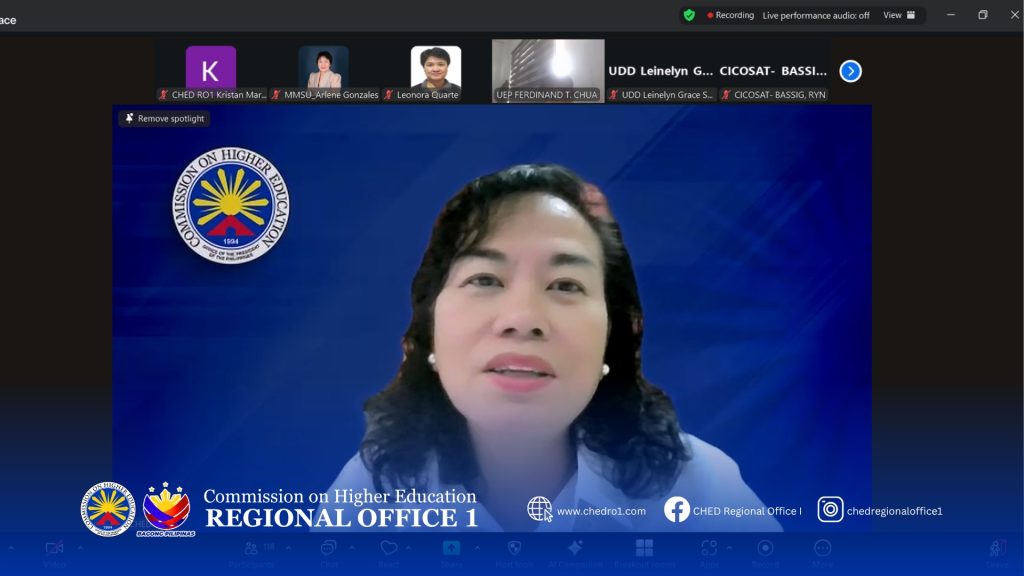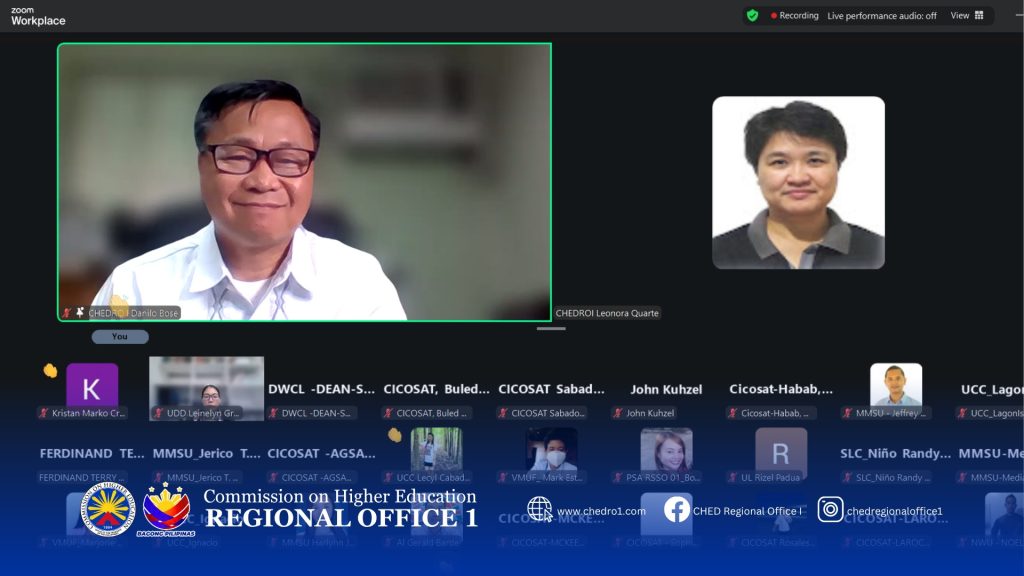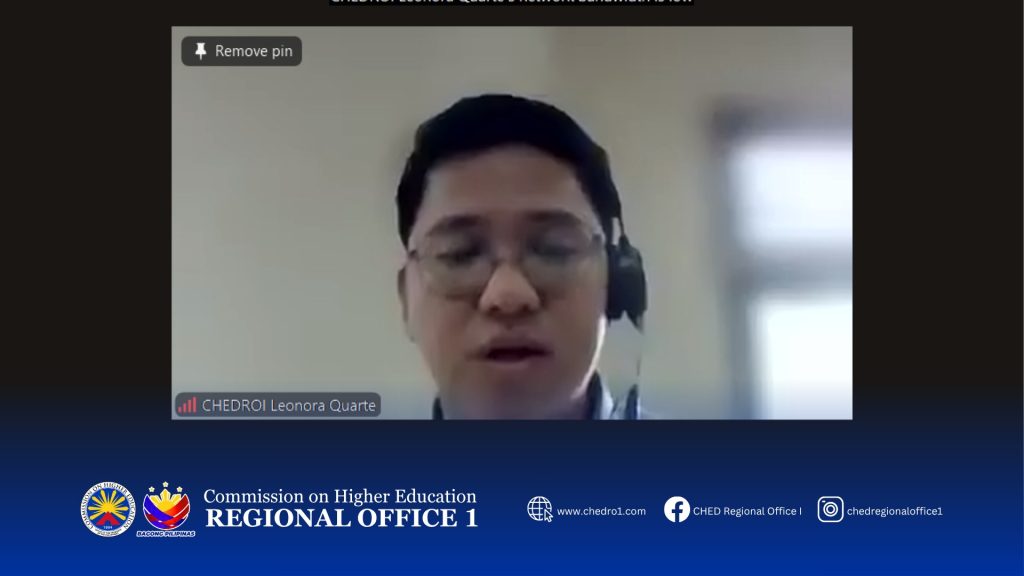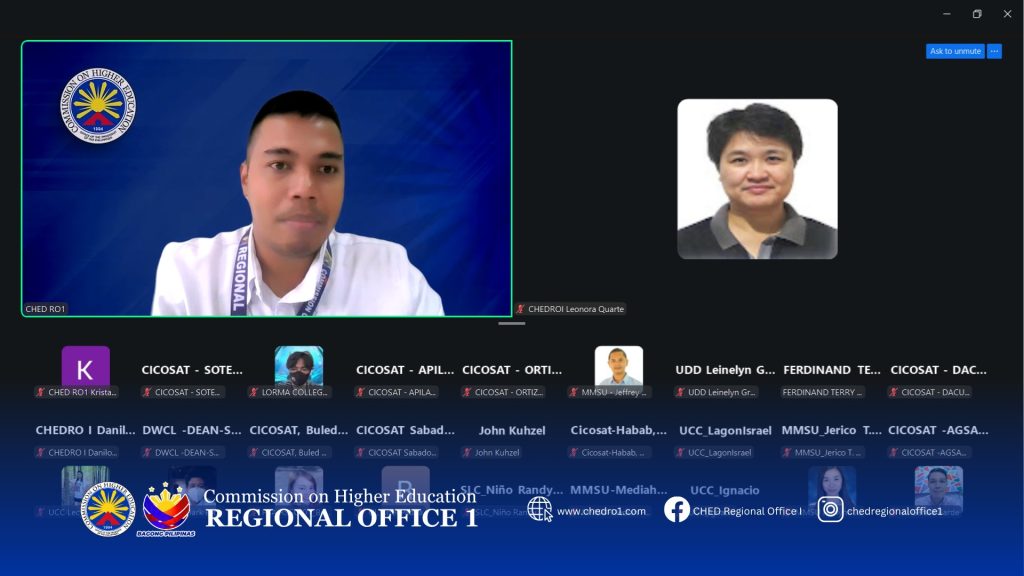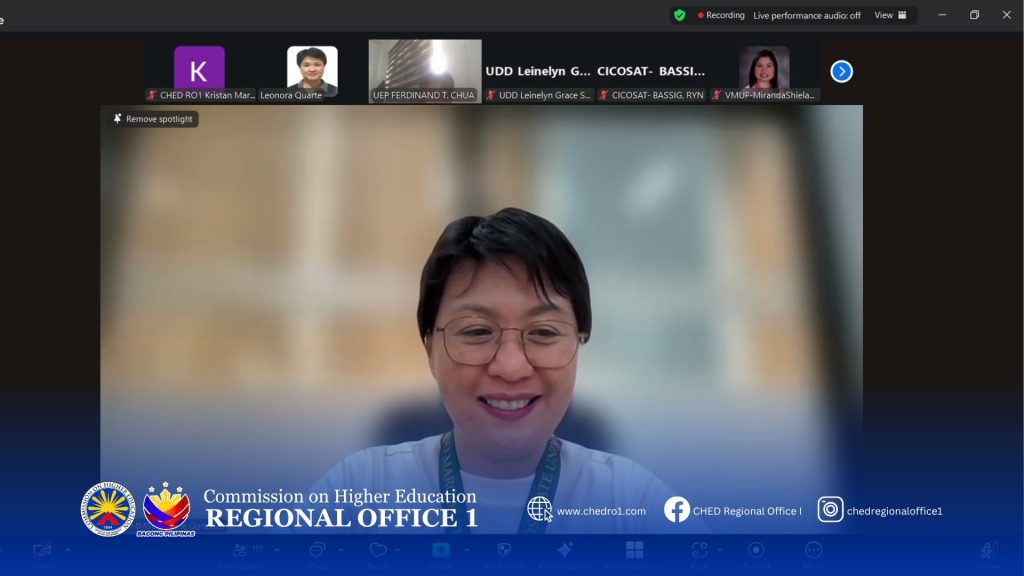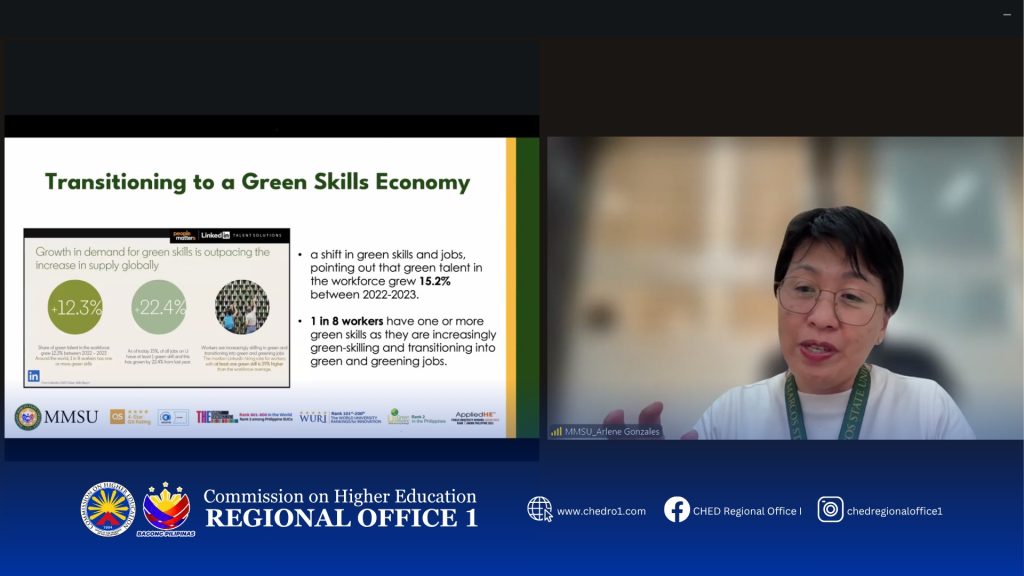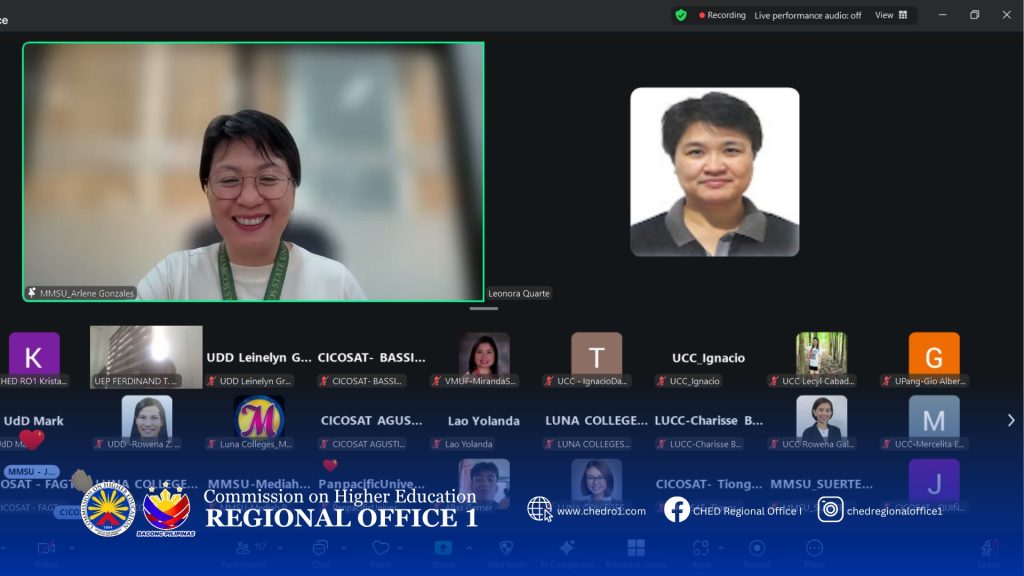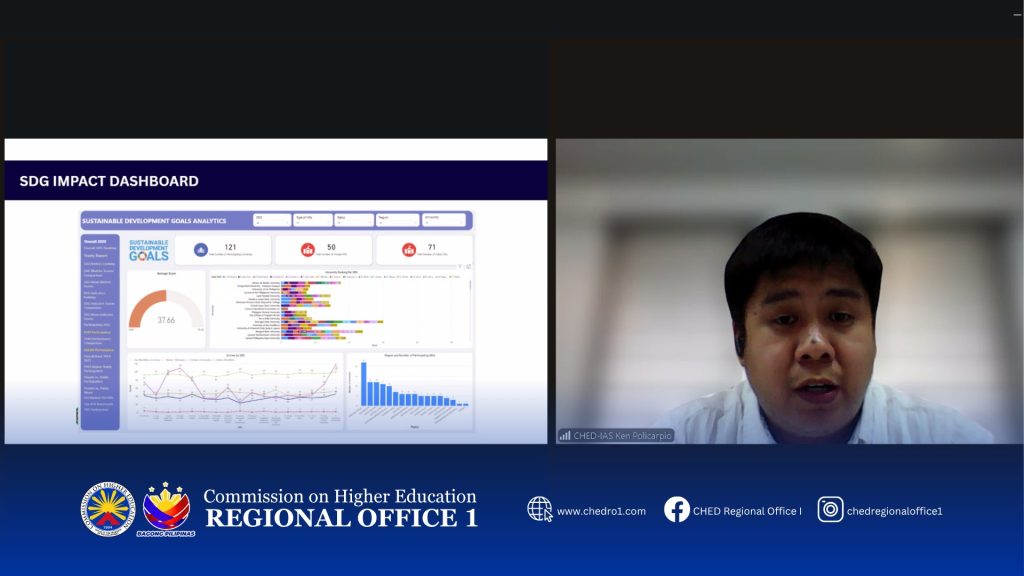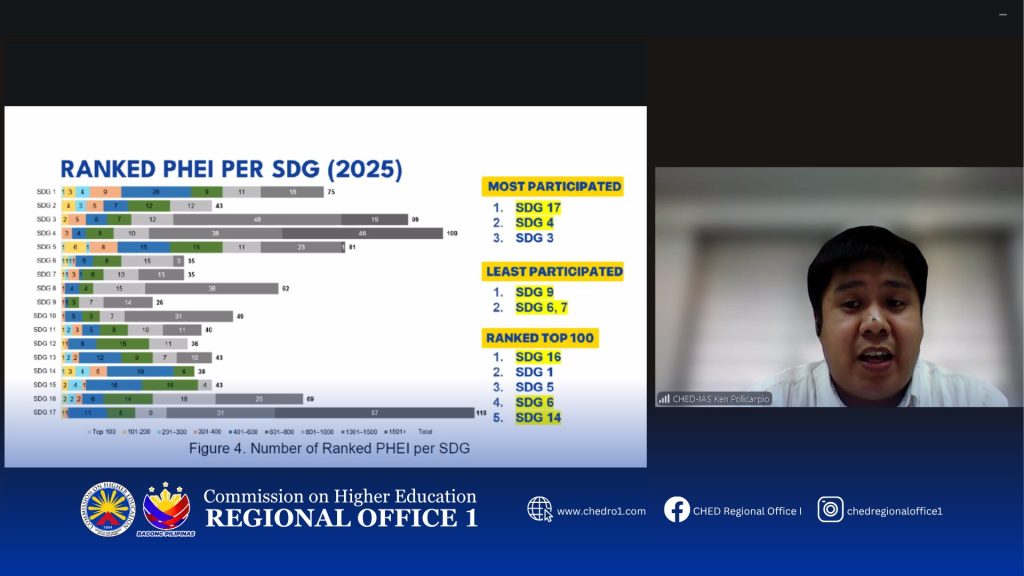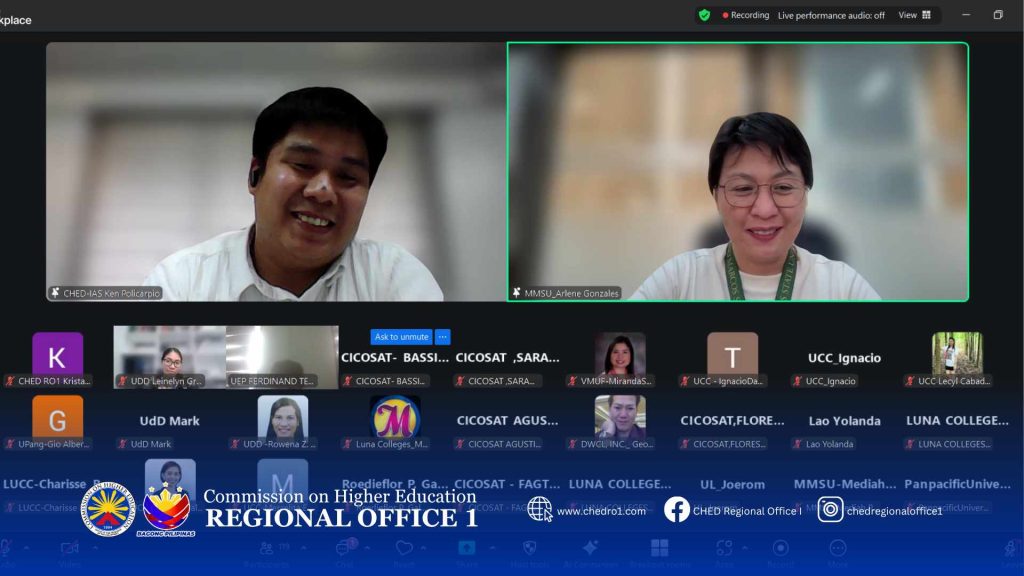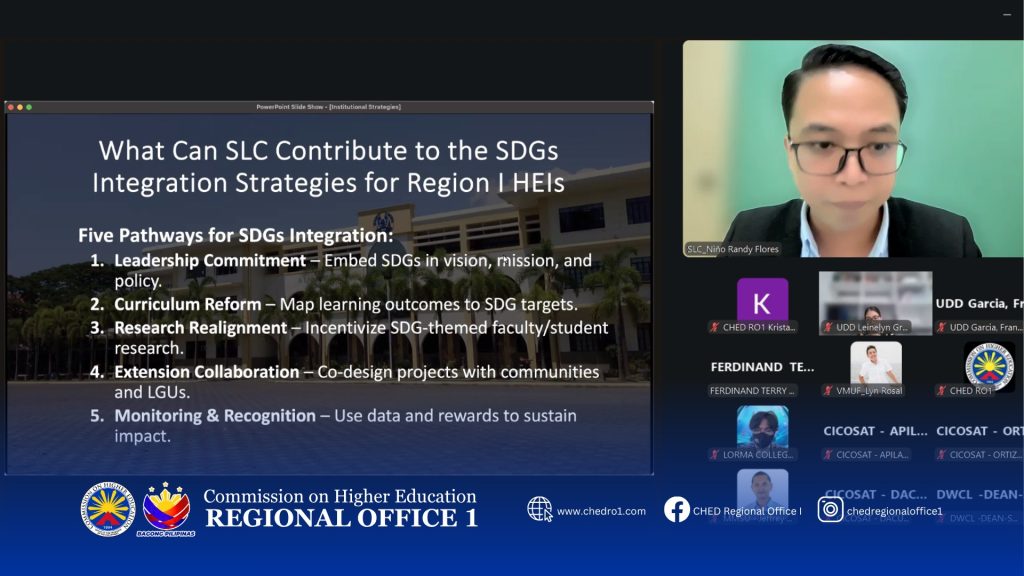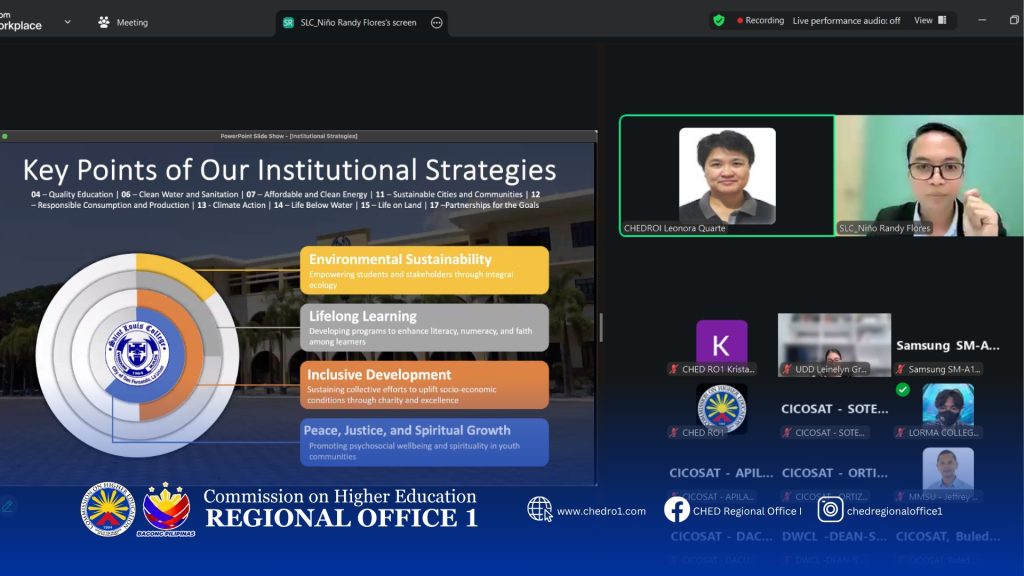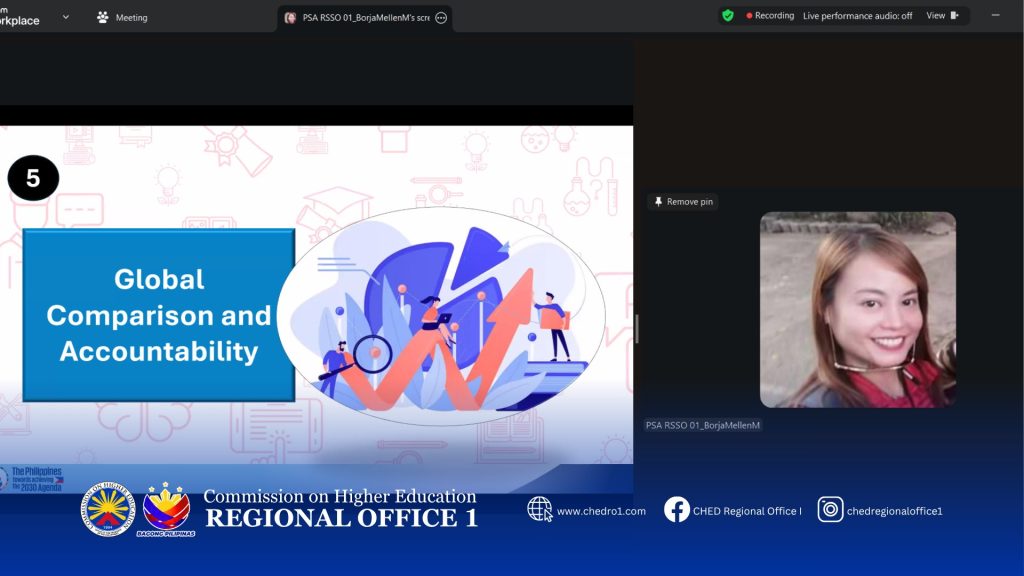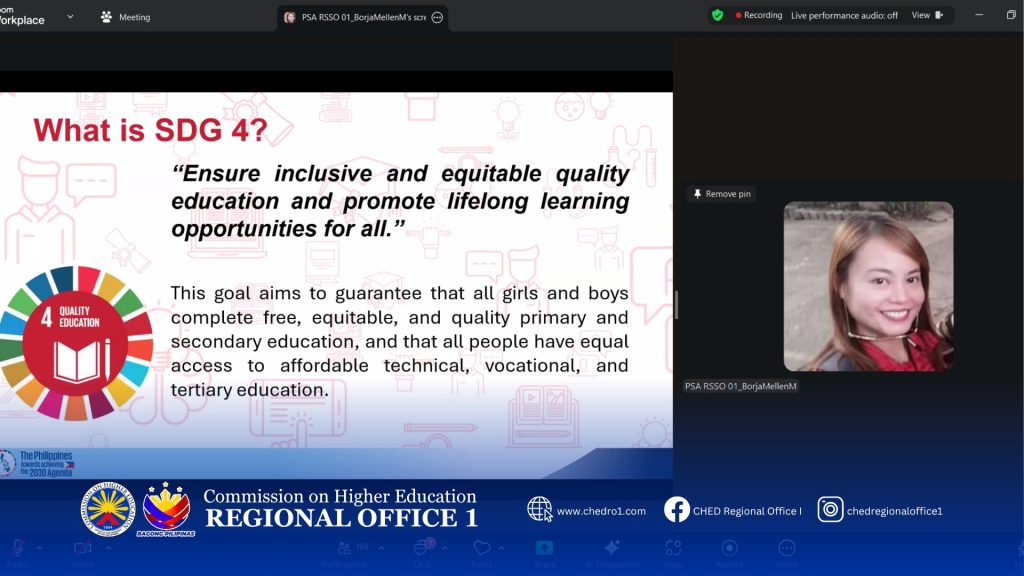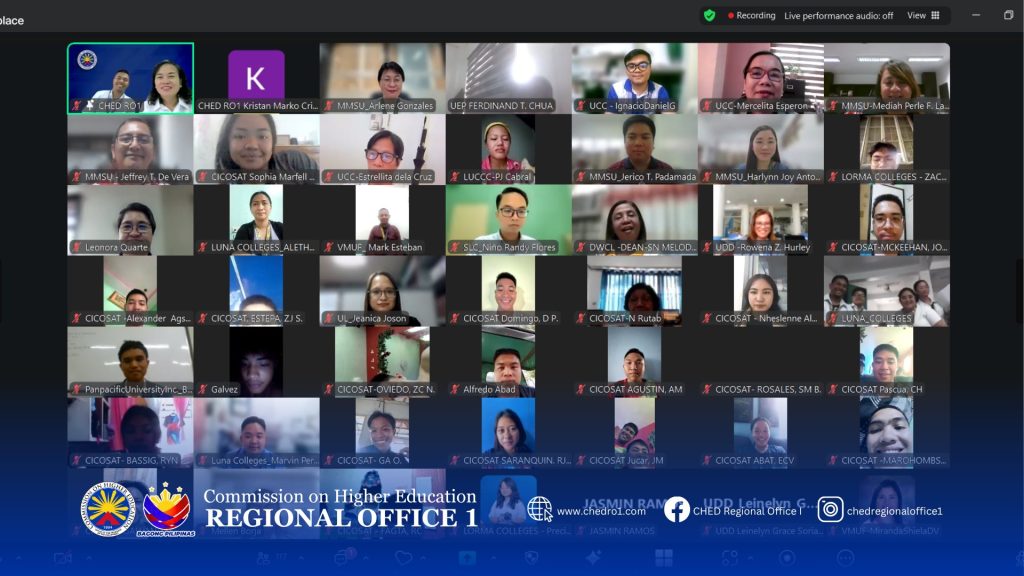Menu
𝗖𝗛𝗘𝗗 𝗥𝗢𝗜 𝗵𝗼𝘀𝘁𝘀 𝗢𝗻𝗹𝗶𝗻𝗲 𝗦𝘆𝗺𝗽𝗼𝘀𝗶𝘂𝗺 𝗼𝗻 𝑼𝒔𝒂𝒑𝒂𝒏𝒈 𝑫𝒂𝒕𝒐𝒔 𝗳𝗼𝗿 𝗡𝗦𝗠
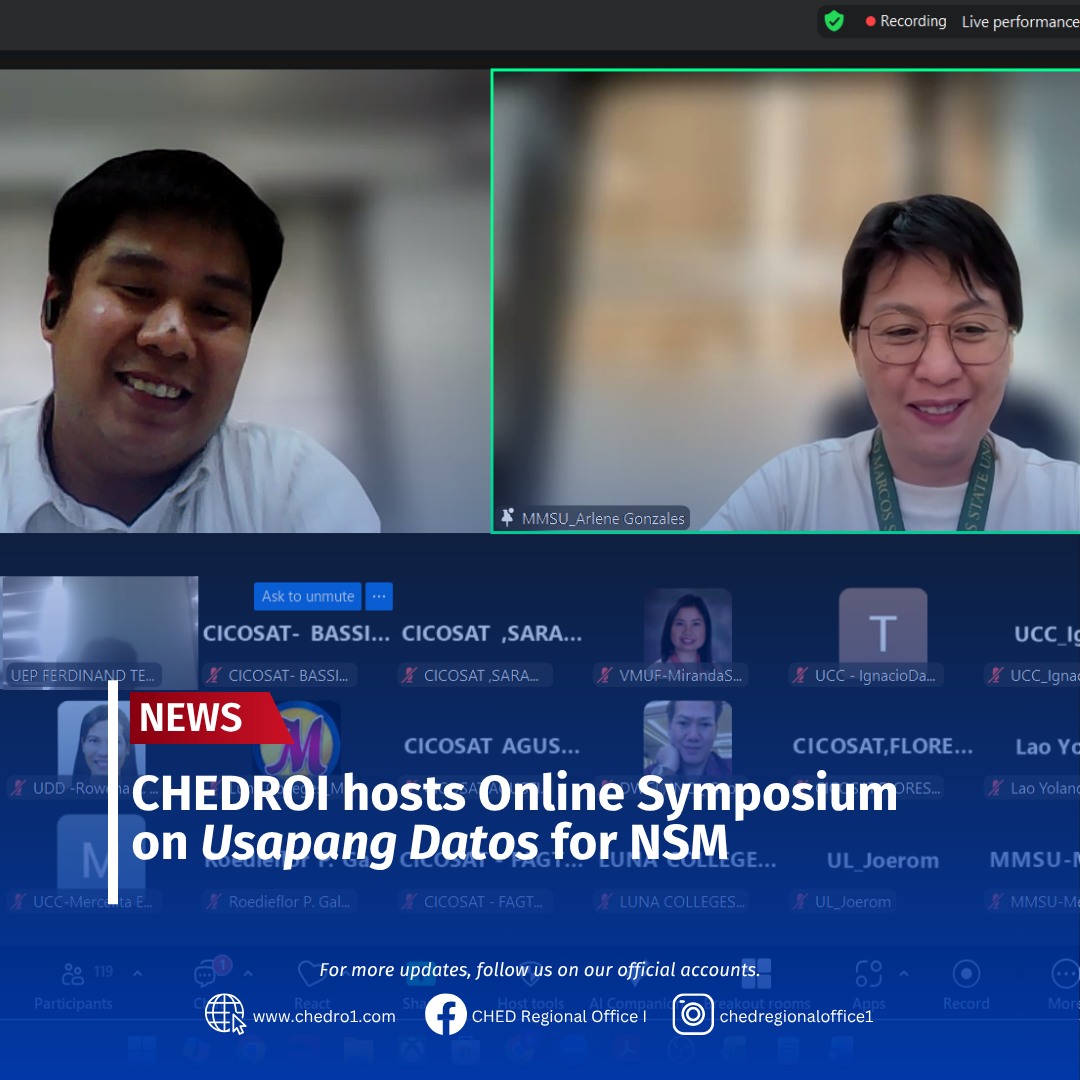
As part of the Commission’s roster of activities in celebration of the 36th National Statistics Month (NSM), CHED ROI held an online symposium titled “Usapang Datos: Ang Papel ng HEIs sa Pagsulong ng SDG,” via Zoom on October 27, 2025.
With the theme “Accelerating the SDG Pace of Progress: Mobilizing Data For All, the symposium aimed to reaffirm that HEIs are not just knowledge producers—they are strategic actors in building a more equitable, resilient, and data-literate future.
In her welcome message. Dr. Christine Nabor-Ferrer, Regional Director of CHEDROI stressed the need to go beyond metrics and measurements to uncover the meaning behind the data.
She reminded the participants that each figure we examine carries the rhythm of institutional progress, the heartbeat of stakeholder engagement, and the pulse of our shared pursuit of quality and impact.
Dr. Danilo Bose, Chief Education Program Specialist, also affirmed the vital role of inclusive, accessible, and timely data in driving the country’s progress toward the Sustainable Development Goals (SDGs) when he presented the objectives of the conduct of the online symposium.
He added that the conduct of the online symposium is also aligned with the ACHIEVE Agenda of CHED Chair Shirley Agrupis, specifically on the Harmonized SDG-based Research and Innovation Agenda and Integrated Real-Time Data Collection and Analytics.
The online symposium opened with a presentation on the Role of Education Statistics in Policy-Making, delivered by Ms. Mellen M. Borja, Senior Statistical Specialist from the Statistical Operations and Coordination Division of PSA RSSO I.
She emphasized the critical function of education statistics in shaping evidence-based policies that respond to the evolving needs of learners, educators, and institutions.
Drawing from her experience in statistical operations, she elucidated on how accurate, timely, and disaggregated data can inform strategic planning, resource allocation, and program evaluation across the education sector.
Mr. Randy Niño Flores, Head of the Research Management Office of Saint Louis College, gave a focused presentation on institutional strategies for integrating the Sustainable Development Goals (SDGs) into academic programs and research initiatives from the lens of a private higher education institution.
He emphasized the critical role of higher education institutions (HEIs) in localizing global development frameworks through curriculum innovation, interdisciplinary research, and community engagement.
Dr. Arlene Gonzales, Director of Sustainability and Futures Thinking, also talked about institutional strategies for integrating SDGs into academic programs and research from the perspectives of a public higher education institution.
Drawing from her expertise in futures thinking and institutional sustainability, Dr. Gonzales emphasized that HEIs must evolve beyond traditional roles and embrace their identity as transformative agents of sustainable development.
She outlined a multi-dimensional approach that positions SDG integration not as an add-on, but as a core institutional commitment.
Mr. Joshua Ken Policarpio. Project Technical Staff III of CHED – International Affairs Services, gave a presentation on the ranking performance of higher education institutions in the country in relation to the Sustainable Development Goals and emphasized the growing visibility and impact of Philippine HEIs in global sustainability metrics.
He spotlighted the HEIs which earned recognition for their contributions to various SDG targets, reflecting strong institutional commitment to aligning academic programs, research, and community engagement with the global development agenda.
He pointed out that these rankings are not merely symbolic—they reflect measurable institutional impact, data transparency, and strategic alignment with CHED’s national development priorities.
Concluding the online symposium, Dr. Angelica Dolores, Supervising Education Program Specialist. commended the speakers and participants for fostering a dynamic exchange of ideas centered on the transformative power of data in higher education.
𝘣𝘺 𝘓. 𝘘𝘶𝘢𝘳𝘵𝘦


